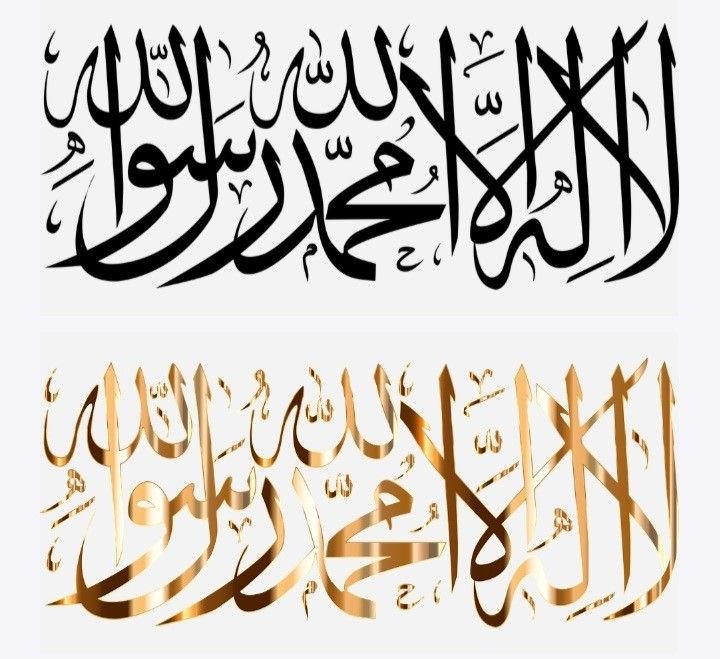In The Name of Allāh, The Most Merciful, The Bestower of Mercy.
Telephone Link Between Al-Allamah Rabee, may Allah have mercy upon him, and the “Strangers Brigade” dated 2nd Ramadan 1420 AH
Questioner: The brothers here have realised that there is no path to guidance and truth except by returning to the scholars — the scholars of Ahl Al-Sunnah — in this era, asking them, and adhering to their statements thereafter. Now, we present to you the most critical issue currently unfolding on the Algerian scene, which is the ongoing conflict between us and the ruling regime for the past eight years. We seek to know your opinion on this matter together with the largest platoon.
We have questions that we urgently need you to clarify the truth for us, so we hope, dear Shaikh, for a thorough and clear explanation. Please open your heart to us and perhaps Allah may guide back to the truth those who have strayed from it, and Allah’s aid is sought!
First question: What is your opinion on the ongoing conflict in Algeria? On what basis do you form your statements and stance, dear Shaikh, knowing that we adhere to the Salafi methodology, uphold the banner of Ahl As-Sunnah Wal Jama’ah, and disassociate ourselves from Jama’ah Takfir Wal-Hijrah that commit massacres and atrocities? We also disassociate ourselves from the proponents of illegal partisanship who revolve around elections and partisanship, among other things?
The Shaikh: May Allah reward you with goodness. I am currently preparing to go to the prayer at Masjid Al-Haram. I want to remind you of the fatwas from scholars and Imams of the Sunnah in this era, such as Shaikh Al-Albani, Shaikh Ibn Baz, and Ibn Uthaymeen. Have you heard and read their fatwas?
Questioner: Yes, we have received them, but some doubts have prevented us from benefiting from them, and we need your answers to these, O our Shaikh.
The Shaikh: “Therefore, the answers to these questions will be postponed until I return from prayer at the Masjid Al-Haram”. Then, the Shaikh made another appointment for later that same day. But before the call ended, the Shaikh added: “I have a quick question for you: What percentage of these individuals are Salafis?”
Questioner: They are a large group, O our Shaikh, a very large group!
The Shaikh: Good, if they are Salafis, why didn’t they refer to the scholars before getting involved in this problem?
Questioner: They were actually relying on a fatwa from Shaikh Nasir Ad-Din al-Albani — I mean — an old fatwa, but it has now become clear that it wasn’t — you know — as strong and sound as they thought, and Allah knows best.
The Shaikh: Good, InShaAlllah, in any case, the investigation will continue later.
And at the appointed time, the revolutionaries contacted the Shaikh
Questioner: We would like to inform you that the ones speaking to you now are your brothers from Algeria, specifically the fighters of the “Salafi Group for Preaching and Combat”, and we are part of one of its brigades: “The Strangers Brigade” in Bouira. Of course, we’ll return after having received insights from the scholars, and we would like to present you with some questions. We had already given you the initial part this morning, and now we are providing you with the details, InShaAllah. Generally, I would like to provide you, our Shaikh, with an overview of the events that have transpired from the beginning until today; so that you have a complete picture of what has occurred, InShaAllah.
As you know, our Shaikh, the issue began with the emergence of the “Islamic Salvation Front” on the scene. The concept of partisanship and elections came into play, but then the elections were halted, leading to the events that unfolded during that time. In 1992, a group among the Takferis initiated acts of violence, while the “Islamic Salvation Front”, during that period, was only supporting the fight through media, encouraging the youth to participate. After that, it spread among the brothers that Shaikh Nasir Ad-Din al-Albani had issued a fatwa regarding this fighting, saying: “Hasten! Hasten!” There is an audio recording from that time, amidst the media circumstances and the changing conditions, I mean the youth began to join these fighters in waves.
The Shaikh: Let me hear the tape of al-Albani.
Questioner: What Shaikh?
The Shaikh: Let me hear the words of Shaikh al-Albani where he said “Hasten! Hasten”. I say: Let me listen to the voice of Shaikh Al-Albani, whose fatwa you have relied upon.
Questioner: The tape is available, but it is based on a reality that does not correspond to the one that the Shaikh was asked about; it did not provide the correct circumstances. It was made to seem to him that there were certain provisions, and that there were 7 million and 3 million, and so forth. Thus, the Shaikh said: “Hasten! Hasten!” as if he understood the opposite of the true circunmstances, leading to the situation that occurred.
The Shaikh: I say, may Allah bless you: Praise be to Allah, and peace and blessings be upon His Messenger, his family, and his companions, and those who follow his guidance. Now, I see that you distinguish between the Salafis and the Takfiris?
Questioner: Yes, indeed!
The Shaikh: From what you’ve said, I understand that you disassociate yourselves from those who declare an unrestricted takfir against the people. Does this imply that you also engage in takfir?
Questioner: Yes, indeed! Yes, indeed! We are not in that manner, but rather in a different way.
The Shaikh: What is your form of takfir?
Questioner: The group declares takfir on the ruler, which is why they have revolted against him.
The Shaikh: The ruler, the army, the ministers, and those around them?
Questioner: Yes indeed! Anyone who joins the ruler’s faction is fought alongside him!
The Shaikh: Do they fight him on the grounds that he is an unbeliever?
Questioner: No, not in the sense of a specific act of disbelief. Not every individual in the faction is considered specifically an unbeliever, O our Shaikh!
The Shaikh: Do you consider the ruler to be an unbeliever at present?
Questioner: Yes, indeed!
The Shaikh: Why do you label him as such?
Questioner: Based on the fact that he has set aside Islamic law and replaced it with man-made laws, and he has fought against Muslims, and Shaikh Nasir Ad-Din al-Albani has issued a fatwa on this matter, as I mentioned to you earlier.
The Shaikh: No! Now, what about the new fatwa from Al-Albani?
Questioner: The new one? This is where our confusion and bewilderment lie, O our Shaikh!
The Shaikh: Al-Albani declares the rulers of Algeria to be disbelievers? Did Al-Uthaymeen or Al-Fawzan say that the rulers are disbelievers? Laa Hawla Walaa Quwwata Illaa Billaah!
Questioner: They did not say that, O our Shaikh.
The Shaikh: Good, and you believe that their disbelief is evident and that there is a proof from Allah, as if they said that Islam is not suitable, that it is backward, and that these laws are better than Islam. Did they say this?
Questioner: We have not heard this from them, O our Shaikh.
The Shaikh: Therefore, you have no clear evidence that they are unbelievers upon a clear (blatant) disbelief. This should be treated according to what has been mentioned in the hadiths that have been transmitted from Allāh’s messenger, peace and blessings of Allāh be upon him, about the Muslim’s stance towards a deviated ruler – the rulers whose good deeds you know and approve and disapprove of their evil deed, about whom he (the Prophet) was said: “They are guided by other than my guidance and follow a path other than my Sunnah”. And there are many hadiths on this matter to the extent that when the Prophet was asked: “Should we fight them?” He replied: “No, not as long as they establish prayer among you”. This means they deviate while in Islam to the very end. If they continue to pray and claim to be Muslims, they should not be fought or rebelled against. Do you understand these points?
Questioner: We listen to you, our virtuous Shaikh, and we are learning from you now.
The Shaikh: Yes, may Allah bless you, study these hadiths, study the statements of the scholars, and study the speech of Al-Albani. You must seek knowledge. Then I ask you: after eight years, what are the fruits of this fighting? What have the Muslims gained from this Jihad?
Questioner: So far, nothing, Shaikh!
The Shaikh: How many have been killed, how much wealth has been lost, how many rights have been violated, and so on?
Questioner: A lot! A lot!
The Shaikh: So many! So many! You have supported this situation, you have backed the Takferis who shed blood, and they have been emboldened by your, and you aided them. You say that you are Salafis and that you oppose their views, but they benefit from your support, and their boldness (in committing crimes) against this society increases through you, crushing them, leaving them with neither (practice of the) religion nor worldly possessions! Is Islam pleased with these qualities?!
Questioner: No, our Shaikh! We have indeed had conflict and disputes with them.
The Shaikh: What led the Algerian people, including its youth, students, and others, to embrace Salafism? Was it this current situation or the time of the revolution and turmoil?
Questioner: The current situation is not better!
The Shaikh: Good, you fought to improve the situation compared to what it was?
Questioner: Yes, indeed! Yes, indeed! It’s an evil situation, O our Shaikh, it’s an evil situation until now!
The Shaikh: Do you not find a lesson in this?! Isn’t this proof that this jihad stemmed from ignorance, and (dubious) Fatwas, we ask Allah for safety. They did not seek guidance from scholars, and instead took the wicked ones – ignorant ones- as leaders – who issue rulings without knowledge, leading themselves and others astray, and they did not stop at misguidance only, but went further to spill blood and destroy Islam. Islam has been severely and horrifically destroyed in Algeria due to the actions of these people!! Perhaps if they had not rushed and had approached knowledge with insight, the Islamic state in Algeria might have been a reality. However, due to their ignorance and ill intentions—because their motives are corrupt and they seek only power—they do not aim to elevate the word of Allāh. They desire to ascend to the pinnacle of governance, which is why they have created elections, democracy, and empty rhetoric. Their only focus is on wrestling with the rulers, and their sole concern is to reach the heights of power. After achieving that, they turn their backs on Islam, just as their counterparts have done in Sudan, Turkey, and elsewhere.
If these individuals were to gain power, they would increase fear and oppression among the people, straying further from Islam…So now… take heed from what has transpired, and roll up your sleeves to gain knowledge and guide this good nation back to the Book of Allah and the Sunnah of the Messenger, so that it may return to its former state before this turmoil, and then advance towards achieving the goals that Islam aspires to.
Questioner: Our Shaikh! According to your statement, it seems that one cannot declare a ruler to be a disbeliever, even if he rules by laws other than what Allah has revealed, until the scholars make such a judgment.
The Shaikh: Yes! The scholars must first see a clear act of disbelief, and then after the fatwa is issued, the question arises whether to fight or not; because Allah says:
وَأَعِدُّوا لَهُمْ مَا اسْتَطَعْتُمْ مِن قُوَّةٍ وَمِن رِبَاطِ الخَيْلِ تُرْهِبُونَ بِهِ عَدُوَّ اللهِ وَعَدُوَّكُمْ
And prepare against them whatever you are able of power and of steeds of war by which you may terrify the enemy of Allah and your enemy. [Al-Anfal 60]
This applies if they are disbelievers. I had some young men come to me at the beginning of this conflict, and I asked them: Have you prepared for battle, considering they are disbelievers in your eyes? They replied: No! I said: You do not have power, while they possess aircrafts, tanks, and so much more, backed by Britain, America, and all the other nations. You have nothing at your disposal, so you haven’t prepared the necessary measures to instill fear in the enemy of Allah. Instead, you have only prepared what encourages the enemy of Allāh against you and Islam. Even if the ruler is openly a disbeliever, in Algeria or elsewhere, it is essential to refer to the scholars. They are the ones who can assess the benefits and harms, determining when fighting is justified and when it is not, and so on. It should not be left to the foolish, the ignorant, or those with ambitions for power. This is a mistake, and you have seen the consequences of this recklessness.
You must repent to Allah, the Exalted, for you may not escape accountability before Him regarding the blood that has been shed, the honour that has been violated, and the wealth that has been stolen and plundered. So turn to Allah with a sincere repentance — may Allah bless you — for you bear the responsibility before Allah, the Mighty and Majestic, because you have participated with these people. Therefore, repent to Allah with a sincere repentance for what has happened to the rights of the Muslims… the oppressed. Then roll up your sleeves, for Allah accepts repentance. And roll up your sleeves in earnest pursuit of knowledge, and call upon your brothers who remain in the mountains to repent and return to Allah. Convey to them the likes of this. [An except from this video: https://youtu.be/2-IZRfLsxwY?si=xrNXOqvl3OgmTchk ]
The motivation behind sharing this excerpt stems from a conversation I had with Ustaadh Zaid Khalid, may Allah preserve him, on Monday. We discussed how even senior scholars refer their elders, during which he recounted an incident and provided me with this Youtube video in which Al-Allamah Rabee Bin Hadi Al-Mad’khali, may Allah have mercy upon him, directed these individuals to the Fatwa of the senior scholars prior to addressing their doubts.
https://salafidawah.uk/2021/02/10/believers-bahaviour-towards-muslim-rulers-advise-given-in-private-supplicate-for-them-and-refrain-from-rebellion-so-beware-of-spiteful-foreign-instigators-and-some-dangerous-social-media-networ/











